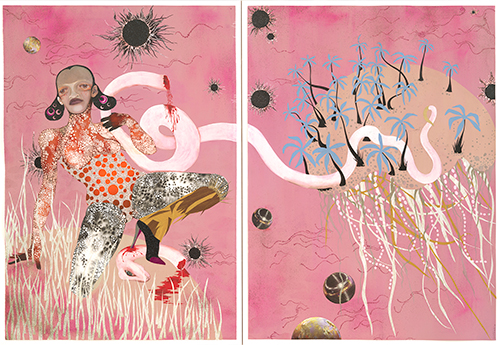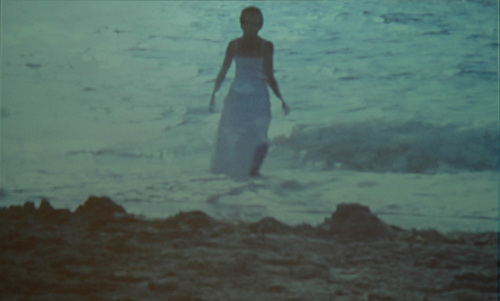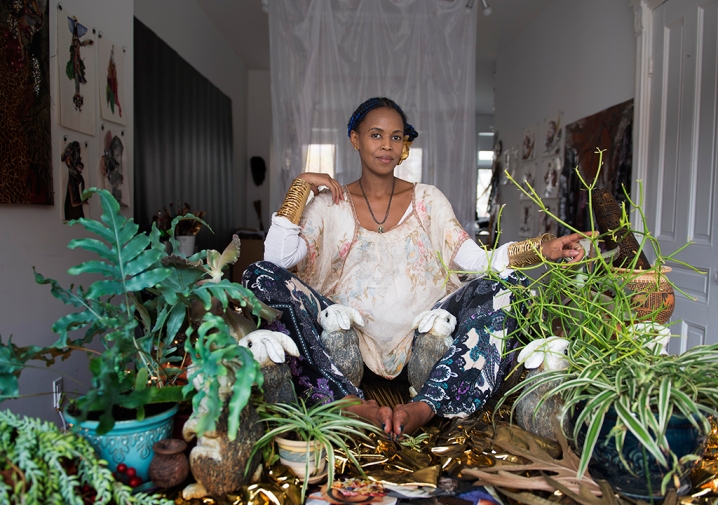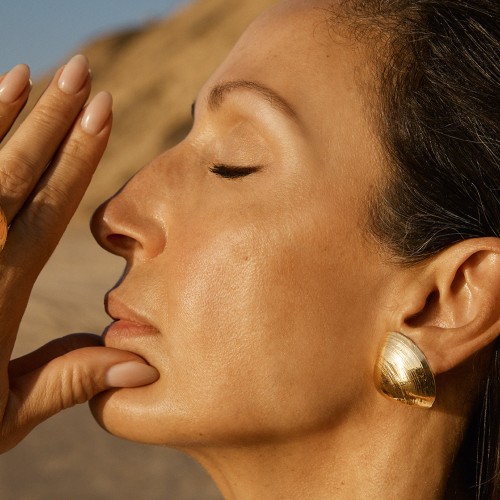Bikini-clad, sun-kissed brown and black bodies in full élan on Ocean Drive might just be wearing the fierce stilettos that decapitate the snake in Wangechi Mutu’s Yo Mama (2003). A diptych collage that challenges notions of Eve and the woman as seductress, this work sets the tone in Mutu’s powerful survey exhibition. “A Fantastic Journey” opens this month at the Museum of Contemporary Art in North Miami, joining Edouard Duval-Carrié at Perez Art Museum Miami and El Anatsui at Bass Museum in a rare and brilliant trifecta of contemporaneous shows. Together, these artists pop the lid on race, colonialism, sexism, consumerism and environmental destruction.

But back to the talk of bikinis, it is perhaps Mutu’s “A Fantastic Journey” that speaks directly to Miami. When asked about feminism and this city’s reputation for over-sexualizing ethnic women, the artist explains, “It’s partly a combination of the underbelly puritanism of Christian and American culture, mixing with issues of race and gender.” Mutu underlines how much imagery, especially through commercial photography, fetishizes brown skin instead of celebrating its inherent resilience to the elements and the sun. In this cultural climate, the fall-out of revealing skin is often reflected in exoticized and negative representations.
Utilizing images that range from fashion glossies to ethnographic journals in her collages, Mutu refers to her favorite newsstands as a laboratory of sorts. Filled with pictures of beachwear and lingerie on voluptuous bodies and curved parts, the media genre begs the artist’s question: “Why are we so obsessed with this particular kind of body in this particular way?”
As an 80s baby from Montreal where ideals of beauty most resembled fashion models from Marie Claire or Elle magazines, it was both liberating and conflicting to discover my own beauty in the very places that exoticize black women. For Mutu, who was born in Nairobi, Kenya, in 1972 and moved to the United States to study art at Cooper Union and Yale, her work has become a conduit for asking pointed questions about social displacement, sexuality and identity.

No stranger to South Florida, Mutu’s last exhibit here was in 2005 at the former Miami Art Museum. In Amazing Grace, she showed video art rooted in the origins of the Atlantic slave trade and that casts the ocean as a duplicitous character. Mutu describes the water as both beautiful and intimidating, evoking metaphors of cleansing and drowning. In the video, she immerses herself in the sea as a gesture for embracing a new home. Its significance is not lost in Miami where illegal immigration, sexual trafficking and transience are overwhelming realities.
Coming full circle, Amazing Grace will return as part of “A Fantastic Journey” on April 18 – July 6, 2014 at the Museum of Contemporary Art in North Miami (770 NE 125th Street, North Miami). Mutu’s The End of eating Everything, a short animation film featuring Santigold, will also be on view and is an Afrofuturist gem not to be missed.
;



